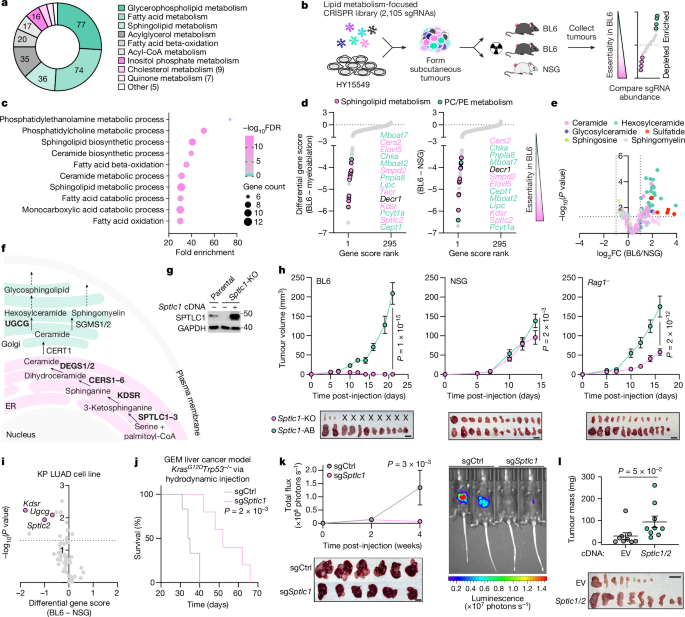Glycosphingolipid Synthesis: A Critical Pathway for Cancer Immune Evasion
The article explores the role of lipid metabolism in cancer, specifically focusing on the importance of glycosphingolipid synthesis for cancer immune evasion. Using functional genomics and lipidomic approaches, the researchers found that de novo sphingolipid synthesis is a critical pathway for cancer cells to evade the immune system, even though it is not required for cancer cell proliferation in culture or in immunodeficient mice.
The key findings are:
- Blocking sphingolipid production in cancer cells enhances the anti-proliferative effects of natural killer and CD8+ T cells, partly via interferon-γ (IFNγ) signalling.
- Depletion of glycosphingolipids increases the surface levels of IFNγ receptor subunit 1 (IFNGR1), which mediates IFNγ-induced growth arrest and pro-inflammatory signalling.
- Pharmacological inhibition of glycosphingolipid synthesis synergizes with checkpoint blockade therapy to enhance the anti-tumor immune response.
The article highlights the critical role of glycosphingolipid synthesis in cancer immune evasion, despite its dispensability for cancer cell proliferation. Targeting this pathway could be a promising strategy to enhance the effectiveness of cancer immunotherapies.
Samenvatting aanpassen
Herschrijven met AI
Citaten genereren
Bron vertalen
Naar een andere taal
Mindmap genereren
vanuit de broninhoud
Bron bekijken
www.nature.com
Glycosphingolipid synthesis mediates immune evasion in KRAS-driven cancer - Nature
Belangrijkste Inzichten Gedestilleerd Uit
by Mari... om www.nature.com 08-07-2024
https://www.nature.com/articles/s41586-024-07787-1
Diepere vragen
